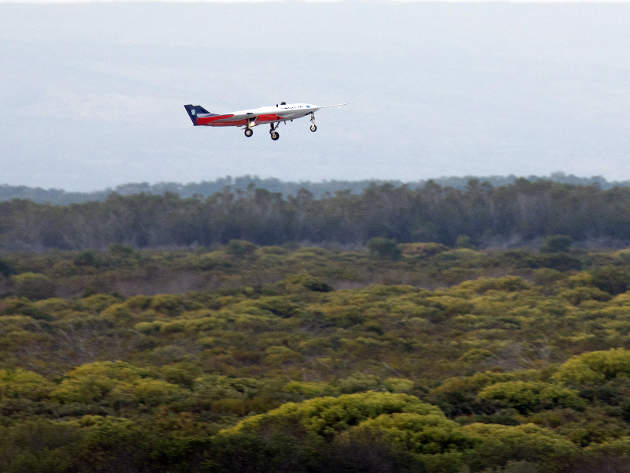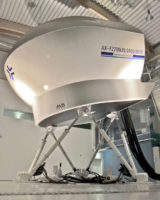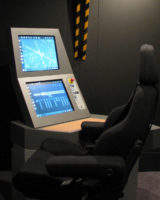AXIS Flight Simulators

AXIS supplies flight training equipment in compliance with all regulatory standards (EASA, FAA and ICAO), ranging from flat panel trainers to full flight simulators. AXIS innovative modular design and the use of OEM quality simulated aircraft parts greatly enhance simulator reliability and help to keep down costs throughout the whole lifecycle.
Full flight simulators
Our flight simulators include the following features:
- 60-inch stroke 6-DOF electric or hydraulic motion base
- Real time systems for all parts of the simulator providing deterministic response behavior with minimized time delays between simulation kernel, vision system and motion system
- User friendly, ergonomic forward facing, movable Instructor Operating Station with TFT touch screen reduces instructor workload and faciliates planning and management of the training session
- eQTG fully compliant to ARINC 436 standard
- 180 × 40 degrees collimated visual system with fully textured day/dusk/night compatible database, high resolution digital projection with spherical geometric correction and raster lightpoint capability, latest lightweight DLP projection technology
- Professional real-time signal-processing software together with high quality full-range loudspeakers mounted inside the cockpit, gives a powerful combination that provides the flight deck of our simulators with an amazingly realistic three-dimensional reproduction of the real acoustic landscape
- Cost effectiveness due to very latest proven technologies and high fidelity OEM replication of parts
- Modular design, allowing total customization for todays training requirements
Flight simulator operation and maintenance
We provide the following operation and maintenance services for flight simulators:
- High reliability paired with low maintenance cost arising from our commitment to quality in conjunction with our permanent strive for improvement at each stage from planning to production and beyond
- On demand, flight simulators can be monitored via internet reducing maintenance work to a minimum
- Extensive maintenance training including hardware- and software systems
- Supply of spare parts and repair services
Basic and advanced flight training
Axis was founded 2004 by aviation experts with highly sophisticated soft- and hardware skills, well proven in the industry. This alliance of committed engineers and professional pilots represents a unique combination of competence and experience. From a basic Training Device to a Full Flight (Level D) Simulator, our products meet and exceed the qualification requirements (EASA, FAA, ICAO) assuring the highest fidelity for pilot training.
Products and Services
Video
White Papers
Related Projects

Sagitta UAV Demonstrator

Irkut МС-21 Aircraft

SolarStratos Solar-powered Plane

Piper M600 Aircraft
Press Release
Regional Offices
Philipsstr. 27
8403 Lebring
Other
Austria













